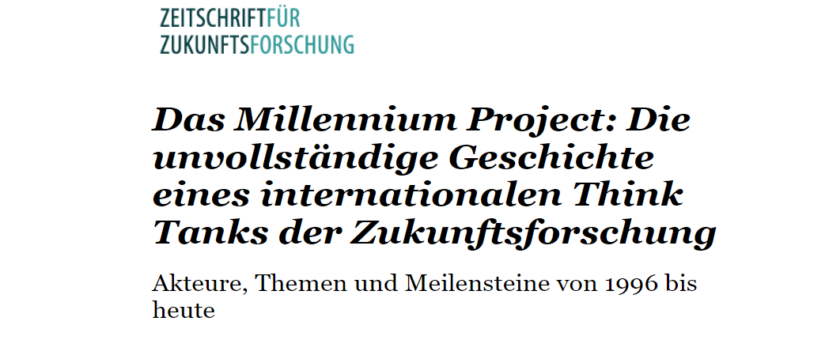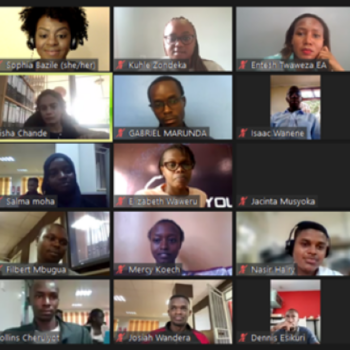
An “incomplete” history of The Millennium Project
- Posted by Mara Di Berardo
- On 30 August 2024
- 0 Comments
- Germany node, history, Scenarios, the millennium project
A new paper on “The Millennium Project: The Incomplete History of an International Futures Studies Think Tank” by Cornelia Daheim, Co-Chair of the Germany Node, and Jörg Rampacher (with contributions from Clara Jöster-Morisse) was recently published in Zeitschrift für Zukunftsforschung (Open Access Journal).
The publication provides a comprehensive overview of The Millennium Project and its development from the 1990s to the present. It begins with an introduction to the emergence and foundation of The Millennium Project within the context of global futures studies. The document then details the project’s structure and core principles, including the roles of its key actors, Planning Committee, and global network of Nodes, with a special focus on the German Node. It explores major activities and projects, such as the 15 Global Challenges, the State of the Future Report, the Global Futures Intelligence System, the Futures Research Methodology publication, and various scenarios projects. Current focus areas are examined, including scenarios in crisis situations (e.g. COVID-19 Pandemics and the RTD on 5 UN’s foresight elements), the Work/Tech 2050 study, the ongoing study on governance models for the transition to Artificial General Intelligence, and perspectives from the World Futures Day. The publication concludes with an outlook on the future directions of the project.
Abstract: The Millennium Project is a non-profit global think tank dedicated to exploring global futures. Established in 1996, it is set up as a network of Nodes, now over 70 worldwide, which bring together futures experts from science, politics, business, and society. The Millennium Project’s most prominent outputs are the regularly published “State of the Future” reports. This article presents key milestones—projects and issues, protagonists, and fundamental principles—to provide an overview of the initiative and its history.
Download the paper: https://www.zeitschrift-zukunftsforschung.de/zukunftsforschung/article/view/10



